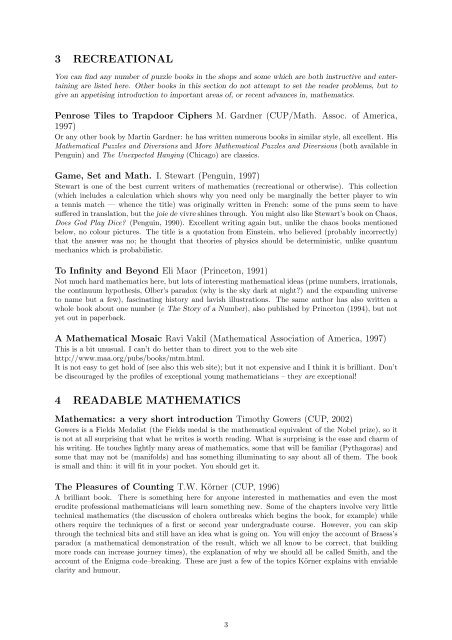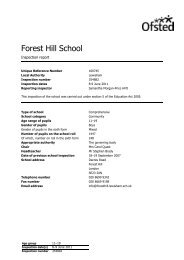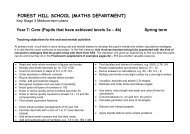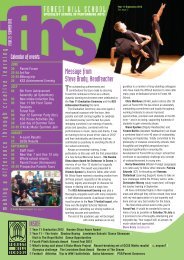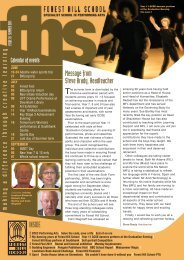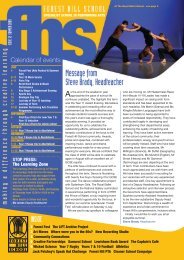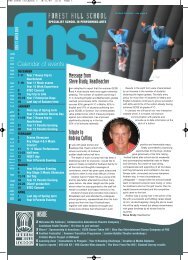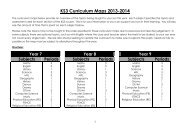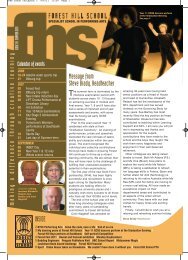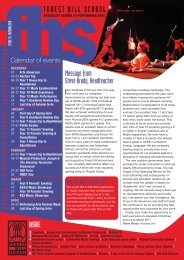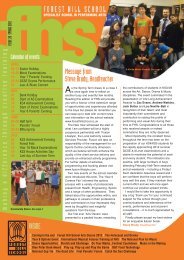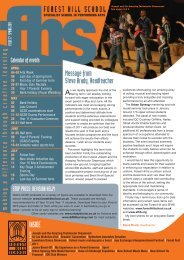University of Cambridge's Mathematical Reading List
University of Cambridge's Mathematical Reading List
University of Cambridge's Mathematical Reading List
- No tags were found...
You also want an ePaper? Increase the reach of your titles
YUMPU automatically turns print PDFs into web optimized ePapers that Google loves.
3 RECREATIONALYou can find any number <strong>of</strong> puzzle books in the shops and some which are both instructive and entertainingare listed here. Other books in this section do not attempt to set the reader problems, but togive an appetising introduction to important areas <strong>of</strong>, or recent advances in, mathematics.Penrose Tiles to Trapdoor Ciphers M. Gardner (CUP/Math. Assoc. <strong>of</strong> America,1997)Or any other book by Martin Gardner: he has written numerous books in similar style, all excellent. His<strong>Mathematical</strong> Puzzles and Diversions and More <strong>Mathematical</strong> Puzzles and Diversions (both available inPenguin) and The Unexpected Hanging (Chicago) are classics.Game, Set and Math. I. Stewart (Penguin, 1997)Stewart is one <strong>of</strong> the best current writers <strong>of</strong> mathematics (recreational or otherwise). This collection(which includes a calculation which shows why you need only be marginally the better player to wina tennis match — whence the title) was originally written in French: some <strong>of</strong> the puns seem to havesuffered in translation, but the joie de vivre shines through. You might also like Stewart’s book on Chaos,Does God Play Dice? (Penguin, 1990). Excellent writing again but, unlike the chaos books mentionedbelow, no colour pictures. The title is a quotation from Einstein, who believed (probably incorrectly)that the answer was no; he thought that theories <strong>of</strong> physics should be deterministic, unlike quantummechanics which is probabilistic.To Infinity and Beyond Eli Maor (Princeton, 1991)Not much hard mathematics here, but lots <strong>of</strong> interesting mathematical ideas (prime numbers, irrationals,the continuum hypothesis, Olber’s paradox (why is the sky dark at night?) and the expanding universeto name but a few), fascinating history and lavish illustrations. The same author has also written awhole book about one number (e The Story <strong>of</strong> a Number), also published by Princeton (1994), but notyet out in paperback.A <strong>Mathematical</strong> Mosaic Ravi Vakil (<strong>Mathematical</strong> Association <strong>of</strong> America, 1997)This is a bit unusual. I can’t do better than to direct you to the web sitehttp://www.maa.org/pubs/books/mtm.html.It is not easy to get hold <strong>of</strong> (see also this web site); but it not expensive and I think it is brilliant. Don’tbe discouraged by the pr<strong>of</strong>iles <strong>of</strong> exceptional young mathematicians – they are exceptional!4 READABLE MATHEMATICSMathematics: a very short introduction Timothy Gowers (CUP, 2002)Gowers is a Fields Medalist (the Fields medal is the mathematical equivalent <strong>of</strong> the Nobel prize), so itis not at all surprising that what he writes is worth reading. What is surprising is the ease and charm <strong>of</strong>his writing. He touches lightly many areas <strong>of</strong> mathematics, some that will be familiar (Pythagoras) andsome that may not be (manifolds) and has something illuminating to say about all <strong>of</strong> them. The bookis small and thin: it will fit in your pocket. You should get it.The Pleasures <strong>of</strong> Counting T.W. Körner (CUP, 1996)A brilliant book. There is something here for anyone interested in mathematics and even the mosterudite pr<strong>of</strong>essional mathematicians will learn something new. Some <strong>of</strong> the chapters involve very littletechnical mathematics (the discussion <strong>of</strong> cholera outbreaks which begins the book, for example) whileothers require the techniques <strong>of</strong> a first or second year undergraduate course. However, you can skipthrough the technical bits and still have an idea what is going on. You will enjoy the account <strong>of</strong> Braess’sparadox (a mathematical demonstration <strong>of</strong> the result, which we all know to be correct, that buildingmore roads can increase journey times), the explanation <strong>of</strong> why we should all be called Smith, and theaccount <strong>of</strong> the Enigma code–breaking. These are just a few <strong>of</strong> the topics Körner explains with enviableclarity and humour.3


